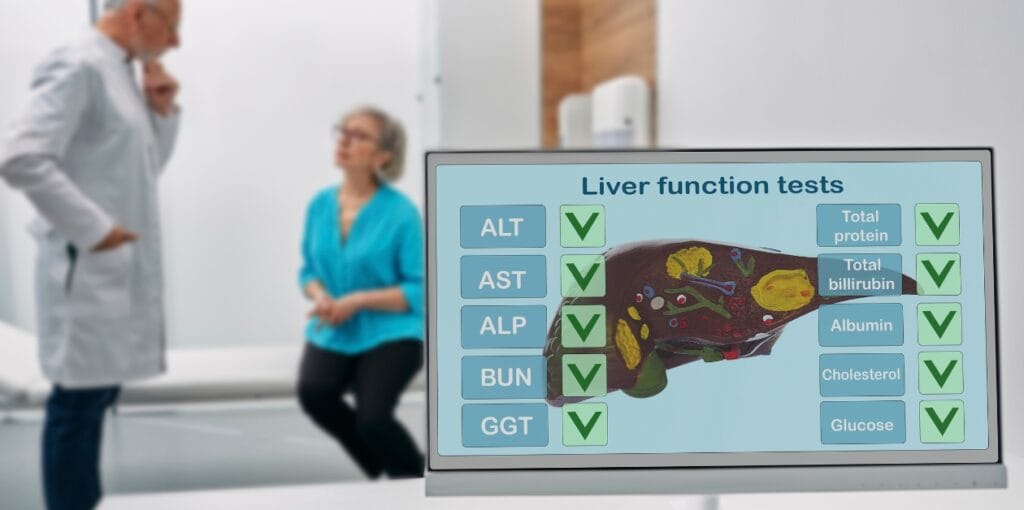Understanding Your Liver Function Test Results: What They Mean for Your Health

Liver function test (LFTs) are a group of blood tests that provide valuable information about the state of your liver. These tests help diagnose liver diseases, monitor the progression of liver conditions, and evaluate the effectiveness of treatments. At PI Health Cancer Hospital, we believe in empowering our patients with knowledge to better understand their health. This blog will explain the different components of liver function tests and what your results might mean.
What Are Liver Function Tests?
Liver function tests measure the levels of various enzymes, proteins, and substances in the blood that are produced or processed by the liver. The key components of LFTs include:
- Alanine Aminotransferase (ALT): An enzyme found in the liver that helps convert proteins into energy. High levels of ALT can indicate liver damage.
- Aspartate Aminotransferase (AST): An enzyme that helps metabolize amino acids. Elevated AST levels can also suggest liver damage, but it is less specific than ALT.
- Alkaline Phosphatase (ALP): An enzyme related to the bile ducts. High levels can indicate bile duct obstruction or liver disease.
- Gamma-Glutamyl Transferase (GGT): An enzyme involved in bile production. Elevated GGT levels can indicate liver or bile duct damage.
- Bilirubin: A substance produced during the breakdown of red blood cells. High levels of bilirubin can cause jaundice and indicate liver dysfunction.
- Albumin and Total Protein: Proteins produced by the liver. Low levels can indicate liver disease or other conditions affecting protein production.
Interpreting Your Liver Function Test Results
Understanding your LFT results can be complex, as they need to be interpreted in the context of your overall health and medical history. Here’s a breakdown of what different results might mean:
- High ALT and AST Levels: These enzymes are released into the bloodstream when liver cells are damaged. Elevated levels can indicate conditions such as hepatitis, fatty liver disease, or liver cirrhosis.
- High ALP Levels: Elevated ALP can suggest bile duct obstruction, liver disease, or bone disorders. It’s often used in conjunction with other tests to pinpoint the cause.
- High GGT Levels: Increased GGT levels can indicate liver or bile duct damage, often due to alcohol consumption, medications, or other toxins.
- High Bilirubin Levels: Elevated bilirubin can cause jaundice, characterized by yellowing of the skin and eyes. It can indicate liver disease, bile duct obstruction, or hemolytic anemia.
- Low Albumin and Total Protein Levels: Low levels can suggest chronic liver disease, malnutrition, or conditions affecting protein synthesis.
Common Liver Conditions Detected by LFTs
Liver function tests can help diagnose a variety of liver conditions, including:
- Hepatitis: Inflammation of the liver caused by viral infections, alcohol, or autoimmune diseases.
- Fatty Liver Disease: Accumulation of fat in liver cells, often associated with obesity and metabolic syndrome.
- Cirrhosis: Scarring of the liver tissue due to chronic liver damage.
- Liver Cancer: Malignant growths in the liver, often detected through abnormal LFT results and imaging studies.
- Bile Duct Obstruction: Blockage of the bile ducts, which can lead to liver damage and jaundice.
When to Get Liver Function Tests
Your doctor may recommend liver function tests if you have symptoms of liver disease, such as:
- Jaundice (yellowing of the skin and eyes)
- Abdominal pain and swelling
- Chronic fatigue
- Dark urine and pale stool
- Nausea and vomiting
LFTs are also used to monitor the liver health of individuals with known liver conditions, those taking medications that can affect the liver, and individuals with risk factors for liver disease, such as heavy alcohol use or a family history of liver disease.
How to Prepare for Liver Function Tests
Preparing for liver function tests is usually straightforward. Your doctor may advise you to:
- Fast: Avoid eating or drinking anything except water for 8-12 hours before the test.
- Avoid Certain Medications: Some medications can affect LFT results. Inform your doctor about all the medications and supplements you are taking.
- Limit Alcohol Intake: Avoid alcohol for at least 24 hours before the test, as it can affect liver enzyme levels.
Conclusion
Liver function tests are a crucial tool in diagnosing and monitoring liver health. Understanding your LFT results can help you and your healthcare provider make informed decisions about your health. At PI Health Cancer Hospital, we are committed to providing comprehensive care and support for all your health needs. If you have any concerns about your liver function test results, please contact us for a consultation
